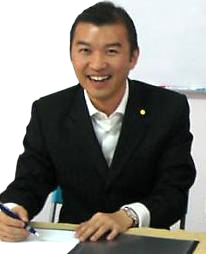Ask the Expert – Homeschooling
by on 03/06/2015 ...


Question : Is home schooling really good for a child’s development? I’m thinking of home schooling my kids, but I wonder if lack of social interactions in a schooling environment will have any effect on them. What do you suggest?
Answer : Home schooling can be defined as a mode of learning where the child learns in an alternative approach, usually at home by their parents. This model of learning can be linked back to selected groups where they have additional needs which cannot be fulfilled by institutional learning. In Malaysia, there are many different home-school approaches. There is no good or bad approach, just suitable or not for the child. How do we determine if home-schooling is a path parents should adopt for their children? Here are some basic rules:
1. What the goals for home-schooling your child?
Establish your goals and transition plan (what and where are you planning your child to achieve and transit to). Goals are important because they will establish the cornerstones for your child curriculum (curriculum – content of learning) and teaching strategies (teaching strategies – process of learning). These cornerstones will assist parents to decide and select what type of home-school program will be suitable for the child. There are many international home-school programs but parents must know that most of them are religious based thus suitability may be limited. However, these home-school programs often are delivered in subjects (topics) so parents can adapt them for their children. Some parents will self-construct their own curriculum with goals towards international examinations. Some of these examinations are International Cambridge or SAT/TOIEC/TOFEL.
2. How do you start?
Once goals and placement transitions are established, parents should explore the availability of curriculum that are available. Some of these are examinations-based like International Cambridge model where candidates sit for subject exams, while some are proficiency-based assessments like SAT. Look around if you are looking for centres that market themselves as home-school models. Strictly speaking, home-school is learning at home, facilitated by parents or other adults. However, some parents setting social interactions as part of their goals (see point 1) will source for centres that have other children. Parents can select centres that offer similar curriculum that allows their children to transit internationally. Other parents may organize their home-school by inviting other children to participate in social activities instead. Different strokes for Different Folks.
3. Who should do home-school?
Anyone who seeks for a different learning experience for their children and want to be an active participant in their children learning can starts home-schooling. Some parents who are jaded by existing schooling system may also starts home-schooling. Other than parents’ expectations, some children who learn differently (like gifted children and children with disabilities) are also home-schooled. Other issues that may influence parents to embark on home-schooling would be lack of suitable learning facilities, transportation difficulties and migration possibilities.
If you have any question, please email your question to editor@kiddy123.com (with email subject “Ask The Expert”).
Thank you in advance for your participation.
…………………………………………………………………………………………………………..
About Our Expert

Professor Dr. Eric Lim is the founder of Kits4Kids Foundation, a foundation that specializes in the education and development of children with special needs.
He also leads many international social enterprises all around the world. Prof. Dr. Eric Lim holds a PhD in Educational Management as well as Masters of Education, Bachelor of Special Education and Masters of Psychology, focusing on child psychology and counseling.
He is passionate about helping as many people as he could in spreading the love for children and humanity.
Prof. Dr. Eric Lim is here to answer your questions on:
- Childhood care (Aged infants and above)
- Children education
- Play tools for skills development
- Family counseling
- Other relevant areas

































